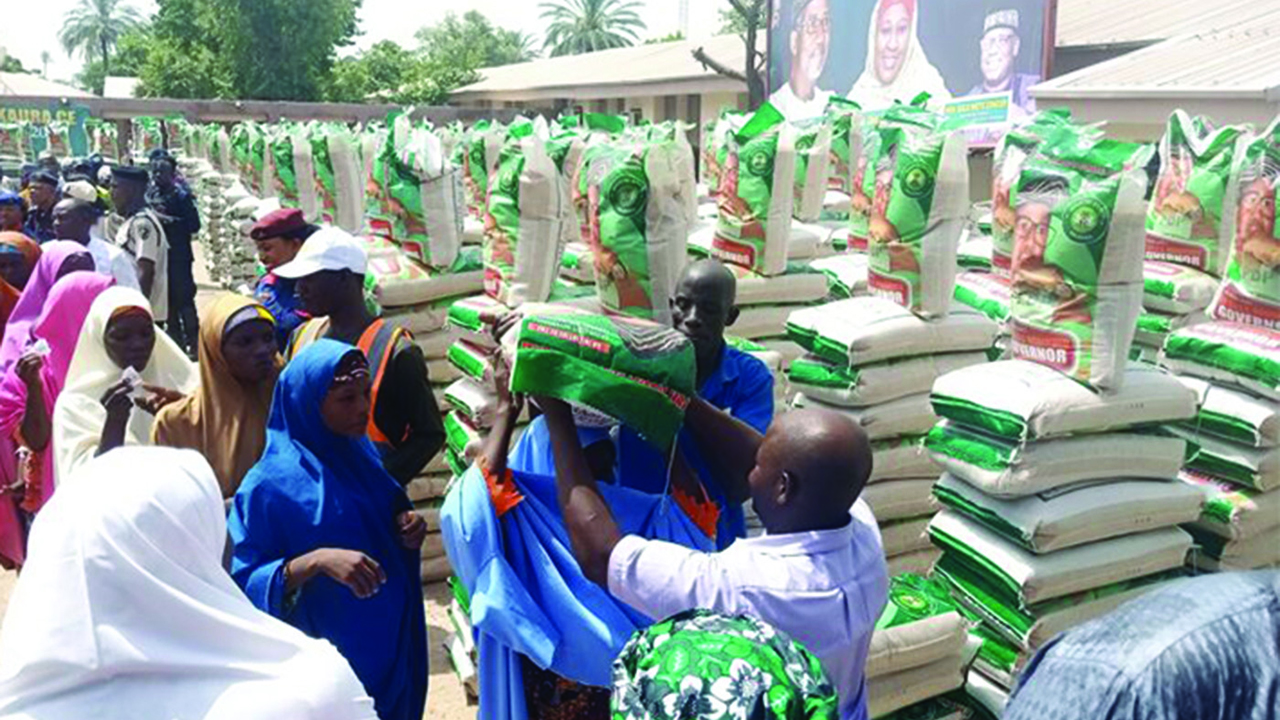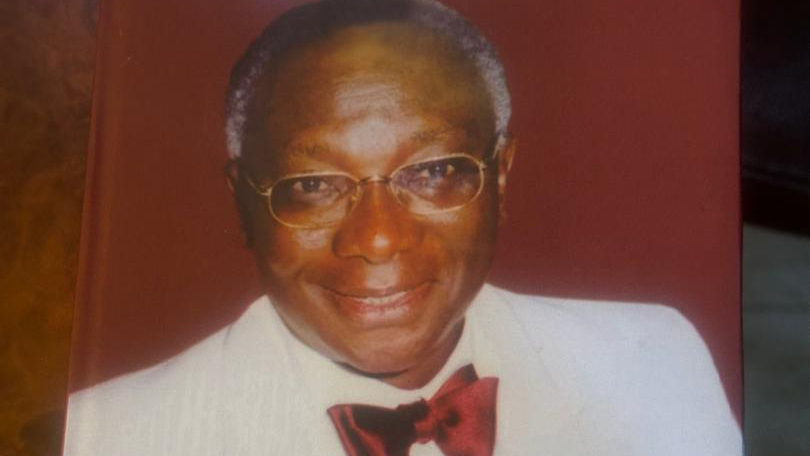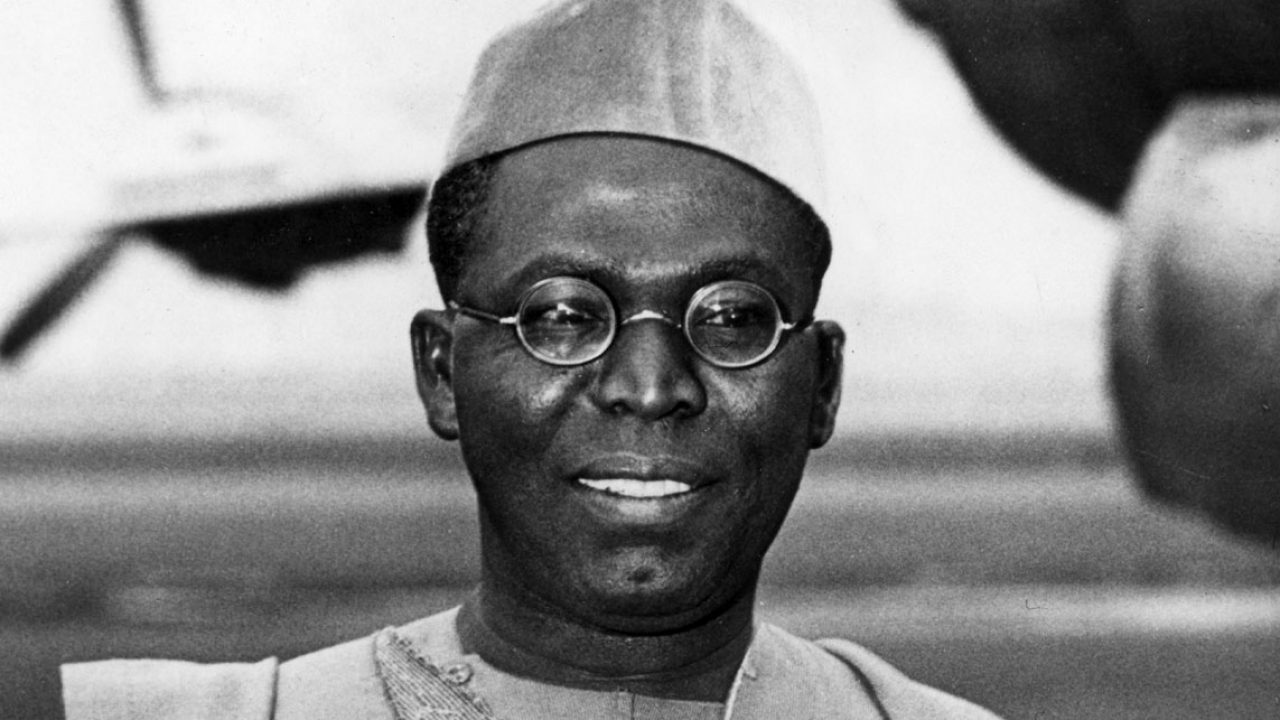
The economic battering Nigerians have been undergoing for quite a while could not but attract attention, not only of the authorities, but even of some citizens who have had their sensibilities assailed by what they see around them. The compelling need to do something about this became heightened with the removal of petrol subsidy, a mechanism we were later to see was a mere postponement of doomsday. The removal of the fuel subsidy immediately shot up the price of fuel from N168 a litre to at first N250 a litre, then N560 and within days to N650 per litre with automatic attendant inflationary waves surging through the land. This was compounded by the floating of the Naira. This triggered foreign exchange crisis with one dollar selling for N1, 200 in the parallel market. Seeing that the doomsday is fast creeping upon the nation, the governments, federal and states, rolled up their sleeves to confront the situation. They announced programmes of palliatives. The first crops of beneficiaries were those described as vulnerable households. President Bola Ahmed Tinubu announced conditional cash transfer of N25, 000 to 15 million households. To finance the support to mitigate the pains he borrowed $1.95 million (U.S. Dollars) between June and September and additional $400 million is planned, according to reports. This is bringing altogether the loan taken by his Administration from the World Bank to $1.2 billion for the conditional cash transfer to the said class of Nigerians.
Palliative by definition means easing of pains. It is not tantamount to cure, permanent, enduring or even short term. The cure will still have to be found. The Oxford Learner’s Dictionary is my witness. It says: Palliative is a medicine or medical treatment that reduces pain without curing its cause. It also states that palliative is an action, a decision etc. that is designed to make a difficult situation seem better without actually solving the cause of the problems. Relief is slightly different. The relevant definition of relief is food, money, medicine, etc that is given to help people in places where there has been a war or natural disaster. This presupposes that when the situation normalises, the victims of natural or man-made disaster will return to their homes and to what they do for a living.
In the present economic circumstances of the country, Tinubu certainly cannot close his eyes to the plight of the citizens. Although he says the palliatives in conditional cash transfer is for three months that is from September to December bringing the total to a household to N75, 000, I see the support as a first phase in the face of rising inflations this newspaper, The Guardian, put at 30.64%, quoting the National Bureau of statistics figures. Headline inflation rose from 25.8% in August to 26.7% in September. There is 200% surge in import duty. Companies are either exiting the country or scaling down. Glaxo-SmithKline (GSK), for example, has shut down its operations in the country and left, but not without outsourcing a few of its critical products to third party pharmaceutical companies. Whether a company is closing shop or scaling down, either way, it means loss of jobs and further stretching of already elongated queues in the labour market. It is bad news for an import dependent economy. Inflation will worsen and a bursting unemployment market has implications for security.
Tinubu just has to get his economic problem alleviation plans to mature quickly because to borrow money to feed a people and meet compelling family needs is not sustainable. The host oil producing communities are warming up for probable confrontation with oil companies over attempt to push the bill in alteration of their entitlement derived from PIA to them to meet. It is a remittance of oil operating expenses to a pool from which communities impacted directly by oil activities are to draw their compensatory benefits.
Only time will tell how much punch the new Tinubu gear will pack and for how long the palliatives will subsist. It is clear, however, that a new direction is being charted even if the train does not appear to be moving as fast and convincingly, as a great many would appear to want it. As we march along in the meantime, the most vulnerable must be wrapped with warmth and love and given a sense of self-worth. The ultimate support that will endure, however, can be found in the Chinese proverb that says if you give a man a fish you feed him for one day, but if you teach him how to fish, you will feed him for all time. We must be taught to stand on our two feet and eat from the sweat of our brow. The former governor of Abia State, Dr. Okezie Ikpeazu already reminded us of the viable choice and the direction we should move. In January 2018, he dispatched 30 young graduates to China to learn automated shoe-making. In 2021, he opened a Footwear Academy. Today, Aba has 150, 000 shoe makers and artisans distributed to different parts of Aba. Long before him, Chief Obafemi Awolowo established trade schools and Farm Settlements in parts of Western Region which were preceded by School of Agriculture in places like Akure the capital of Ondo State today. Gbenga Daniel when he was governor of Ogun State revived farm settlements in his state. Individuals are also known to have helped a great deal with teaching youths entrepreneurship. Two such notable personalities are Tony Elumelu and Fola Adeola. The leading light in this area on the African continent is, of course, Tony Elumelu.
What should follow helping a great many standing on their feet by way of self-empowerment is economic restructuring of the country to return the principle of derivation as a natural principle of revenue sharing and its enthronement as such, even if the pedestal accorded it is marginal. In the guidance of Nature in this or in any other matter of governance in which enduring values are sought, the human body presents an invaluable help. The lungs get oxygen into the body and it is in the lungs that the plum of oxygen supply is to be found. The large intestine absorbs digested food and is, like the liver which stores it, the organ most recommended after the liver for consumption in cases of debilitation where high-grade nourishment is required. It seems logical enough without stretching the argument to other realms which knock at the roots of the origins of people and the resources at their disposal, to conclude that the bulk of the resources should be left in the region where it originates. Perhaps we may like to consider that, although Nigeria is a secular state, its peoples are a very religious lot who subscribe to the Creation concept and equate, correctly, the Creator to the Almighty Father. In this context, each people constitute a child of His, for whom He has provided abundantly, a coarse picture of which is depicted by an earthly father who never fails to load provision for his sustenance, a son he is sending to school overseas. That provision would belong to this earthly son and on no account may any-one take it from him without his consent. If it is taken without his consent, that, of course, would be theft. No one may take and fail to give in return without disturbing a balance and thus provoking the anger of the other.
In the social setting, a people may not withhold their natural blessings from other people for there are no one people who are whole. Each people need something from the other which it lacks but need for its completion and fulfillment, and which it can obtain through the necessary giving and taking. In the healthy interchange that must proceed, however, giving must be voluntary and at par with taking as in exhalation and inhalation, evaporation and rainfall, work and rest. All too often, Nigerian governments have had a ready escape: Oil is a Nigerian resource, too much money in one part will create lopsided development in the land. But oil cannot be a Nigerian resource to the extent that there was no Nigeria when oil was prepared and the people for whom it was meant were led to where it lay buried. It is in the same vein must the argument of balanced development collapse. Has everyone now forgotten the deep and wise saying we are often quick to quote that “fingers are not equal?” which brings us to the recognition that uniformity in life is a day dream.
Tinubu must kick against indolence and dependence. Skill acquisition centres and business schools teach their students that business is set up to meet needs. Strive to identify the needs in your community and meet them, they contend. With the Federal Government setting the tone, State Governors themselves should swing into their programmes to alleviate the sufferings of their people and point the way to development. In doing so, they should resist the temptation in burdening companies and individuals with increase in levies and all manner of indirect taxation. That would not be wealth creation but extraction of what exists to placate the other fellow. Taxes paid by manufacturers this year, 2023, increased by 115% from N192billion in the first quarter of the year, 2023, to N414.5 billion in the second quarter, even when they have had to provide their own infrastructure. With costs going through the roof, many of the manufacturing companies have had to tinker with their business models, dropping some of their products. In time the disequilibrium will be redressed by Law of Nature. It will trigger a disincentive which in turn will lead to a vicious cycle and to eventual collapse.
It is acknowledged by all that this country is exceedingly blessed with human and natural resources. There are no people and there are no states that are lacking in natural provision to sustain them. The only link in the chain missing so far is that leader who can release the creative energies and weave them together. Who can stimulate, and who can awaken the slumbering talents in a great many a citizen. Thus, our problem has been non-creation of wealth which can only be done through production. Production of goods! Great emphasis has been on services/consumption and sharing of “cake” which are no new creation. Who has ever heard of anything being shared that does not exist? Only what is available supplemented with heavy borrowing is what is circulating and shared in these times. The total external borrowing in the last four months by Tinubu Administration has come to $5.350 billion which is about N4.1 trillion. The Nigerian indebtedness to the World Bank moved from $6.29 billion in 2015 to $13.46 billion in 2022. It has in fact jumped from N87.4 trillion in the second quarter of this year to about N91.5 trillion as of today which, predictably, is of concern to economists and financial experts. In no time, it is bound to provoke grumbling as it dawns on the nation that relief will only be palliatives, not cure, and as usual, we would blame everyone else but ourselves for our travails flowing mainly from ignorance of higher correlations of life – knowledge of the perfect, self-enforcing and incorruptible Laws of Creation. When the scale drops from our eyes we would find, as Cassius said to Brutus: “The fault, dear Brutus, is not in our stars, but in ourselves, that we are underlings.”






